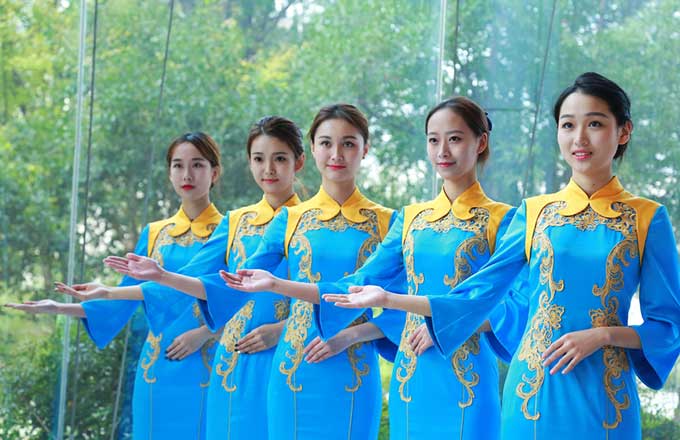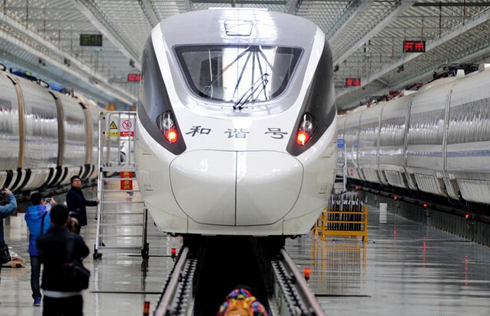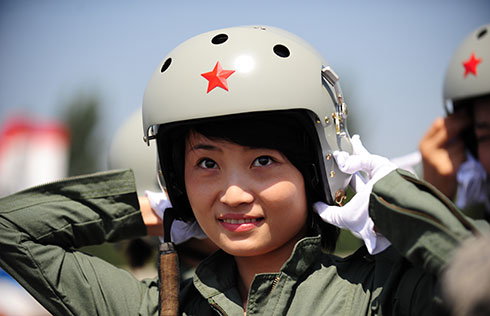Tackling mountain of difficulties
![Gaoligong Mountain is a microcosm of the natural conditions, with mountains and hills accounting for 84 percent of the land. [Photos by Zhu Yong / for China Daily] Tackling mountain of difficulties](../../attachement/jpg/site1/20130208/00221917dead127e99f724.jpg) |
|
Gaoligong Mountain is a microcosm of the natural conditions, with mountains and hills accounting for 84 percent of the land. [Photos by Zhu Yong / for China Daily] |
Dangerous, but essential
In the past 13 years, Dulongjiang has seen a significant change in traffic volume. Before the dirt road was built in 1999, connecting the mountain with Gongshan county seat, local people were unable to afford the horse-drawn carriage, and were forced to climb over the snowcapped hills in winter if they wanted to visit the town.
The State-owned horse caravan that carried all the goods into the township was disbanded in 1999. The snaking road winds up to an altitude of 3,900 meters before plunging down to Kongdang village, where the township government is based. The road was blocked when snow 10 meters deep blanketed the mountaintop from December to June. Many passengers complained that traveling on the road made them severely nauseous.
However, in the old days before the road, most travelers had to walk. "When I reached the top of the mountain, I slipped over the snow like a skier once I'd tucked my trousers into my socks to stop the snow getting into my clothes and melting. But it could be perilous; if I didn't pay enough attention to where I was going, a collision with a tree might be my 'reward'," said Yang Song, a former soldier.
![Heavy snows usually cut off Dulongjiang township from the outside world for six months every year. [Photos by Zhu Yong / for China Daily] Tackling mountain of difficulties](../../attachement/jpg/site1/20130208/00221917dead127e9a3026.jpg) |
|
Heavy snows usually cut off Dulongjiang township from the outside world for six months every year. [Photos by Zhu Yong / for China Daily] |
Yang, 35, once spent 14 hours jogging and walking to Gongshan to attend an urgent meeting. Unsurprisingly, his feet were bleeding badly when he eventually reached his destination.
In 2009, President Hu Jintao and Premier Wen Jiabao urged further improvements in transportation for the Derung people in Dulongjiang. The new tunnel was among a number of projects given top priority by the provincial government.
Between August and October 2010, Zhao Yabo, a senior engineer at Broadvision Engineering Consultants, Yunnan's largest enterprise specializing in transportation research and design, headed a team of 50 technicians who pinpointed the best location for the tunnel by conducting a series of geological tests, or prospects, on Gaoligong Mountain.
"We had to trudge to the mountaintop because there was no road to the spots where we were going to drill for rock samples. Local workers laid trees on the slippery ground to make steps so they could carry the machines to the top," said Zhao.
Zhao hired 50 workers in Gongshan county to transport a drilling machine, weighing 15 metric tons, from the foot of Gaoligong Mountain to the highest drilling point. It took 20 days, he said.
"Gaoligong Mountain is a place where warm air from the Indian Ocean meets cold air from the Pacific and forms rain. Therefore, the humidity was too much for us. Our clothes were soaked all the time and we all huddled around a fire made from small pieces of kindling whenever we had a short break," Zhao said.
One technician, Zong Cong, tripped over a rock near a cliff edge while scrambling to a higher spot. Fortunately, a co-worker caught his hand and pulled him back. "One slide might have been fatal, it could have taken his life," said Zhao.
An assistant engineer, Li Xian, had to rely on his fellow engineers to guide him over the rugged rocks with a safety rope, after an arm he broke years before he was assigned to the mountain proved too weak to let him climb alone.
During his 24-year career, Zhao has participated in prospecting work for highways the length and breadth of Yunnan, but he described the work on and around Gaoligong Mountain as the most difficult he had ever faced professionally.
The Gaoligong Mountain tunnel will be 6.8 km long when completed, making it the longest in Yunnan's history. It and the road-asphalting project required combined investment of 609 million yuan ($98 million) from the provincial government.
The prospecting process for the tunnel reduced the cost by at least 200 million yuan, according to Lu Zhiqiang, deputy general manager of Broadvision Engineering Consultants. Finding an optimum site for drilling can make the job go more easily and requires less spending.
Every year, Broadvision Engineering can earn 100 million to 200 million yuan in prospecting contracts, mostly for expressways or highways, said Lu. As of 2009, the consultancy had completed the prospecting work for 4,863 bridges and 239 tunnels.
Lu was involved in the prospecting work at Gaoligong Mountain in 1991, preparing for the construction of the dirt road. At that time, Lu and his colleagues slept in hammocks, sheltered under one piece of tarpaulin. Firecrackers were a prerequisite for the team, helping the men scare away black bears and wild cattle that might attack if they felt their domain was being invaded, he said.
"For a prospecting team, there is no harder work. Every year, we encounter harsher and harsher conditions," he added.
Related:
- Identity theft victim struggles to reclaim student status
- China develops bullet train with fold-up beds
- China says education does not end in the classroom
- Black box of plane that crashed and killed female fighter pilot found
- Xi Jinping has telephone conversation with US President-elect Donald Trump


















